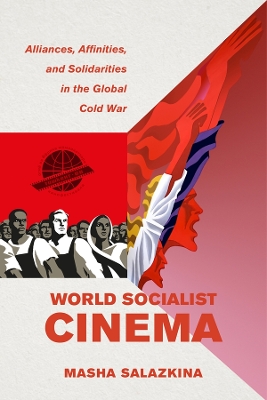Cinema Cultures in Contact
1 primary work
Book 4
One of the Best Scholarly Books of 2023, The Chronicle of Higher Education
A free ebook version of this title is available through Luminos, University of California Press’s Open Access publishing program. Visit www.luminosoa.org to learn more.
In this capacious transnational film history, renowned scholar Masha Salazkina proposes a groundbreaking new framework for understanding the cinematic cultures of twentieth-century socialism. Taking as a point of departure the vast body of work screened at the Tashkent International Festival of Cinemas of Asia, Africa, and Latin America in the 1960s and 1970s, World Socialist Cinema maps the circulation of films between the Soviet Bloc and the countries of the Global South in the mid- to late twentieth century, illustrating the distribution networks, festival circuits, and informal channels that facilitated this international network of artistic and intellectual exchange. Building on decades of meticulous archival work, this long-anticipated film history unsettles familiar stories to provide an alternative to Eurocentric, national, and regional narratives, rooted outside of the capitalist West.
A free ebook version of this title is available through Luminos, University of California Press’s Open Access publishing program. Visit www.luminosoa.org to learn more.
In this capacious transnational film history, renowned scholar Masha Salazkina proposes a groundbreaking new framework for understanding the cinematic cultures of twentieth-century socialism. Taking as a point of departure the vast body of work screened at the Tashkent International Festival of Cinemas of Asia, Africa, and Latin America in the 1960s and 1970s, World Socialist Cinema maps the circulation of films between the Soviet Bloc and the countries of the Global South in the mid- to late twentieth century, illustrating the distribution networks, festival circuits, and informal channels that facilitated this international network of artistic and intellectual exchange. Building on decades of meticulous archival work, this long-anticipated film history unsettles familiar stories to provide an alternative to Eurocentric, national, and regional narratives, rooted outside of the capitalist West.
